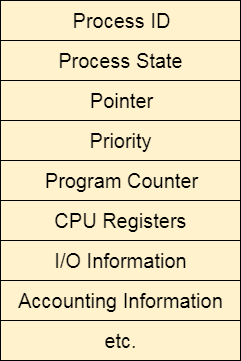CPU SchedulingIn the uniprogrammming systems like MS DOS, when a process waits for any I/O operation to be done, the CPU remains idol. This is an overhead since it wastes the time and causes the problem of starvation. However, In Multiprogramming systems, the CPU doesn't remain idle during the waiting time of the Process and it starts executing other processes. Operating System has to define which process the CPU will be given. In Multiprogramming systems, the Operating system schedules the processes on the CPU to have the maximum utilization of it and this procedure is called CPU scheduling. The Operating System uses various scheduling algorithm to schedule the processes. This is a task of the short term scheduler to schedule the CPU for the number of processes present in the Job Pool. Whenever the running process requests some IO operation then the short term scheduler saves the current context of the process (also called PCB) and changes its state from running to waiting. During the time, process is in waiting state; the Short term scheduler picks another process from the ready queue and assigns the CPU to this process. This procedure is called context switching. What is saved in the Process Control Block?The Operating system maintains a process control block during the lifetime of the process. The Process control block is deleted when the process is terminated or killed. There is the following information which is saved in the process control block and is changing with the state of the process. 
Why do we need Scheduling?In Multiprogramming, if the long term scheduler picks more I/O bound processes then most of the time, the CPU remains idol. The task of Operating system is to optimize the utilization of resources. If most of the running processes change their state from running to waiting then there may always be a possibility of deadlock in the system. Hence to reduce this overhead, the OS needs to schedule the jobs to get the optimal utilization of CPU and to avoid the possibility to deadlock.
Next TopicScheduling Algorithms
|
 For Videos Join Our Youtube Channel: Join Now
For Videos Join Our Youtube Channel: Join Now
Feedback
- Send your Feedback to [email protected]
Help Others, Please Share









